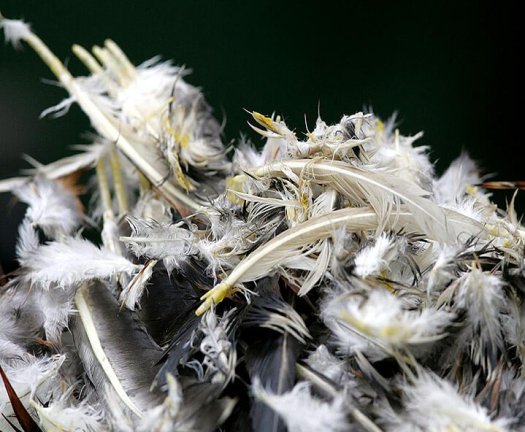In a his article “Cooked Books” (The New Yorker, April 9, 2007), Adam Gopnik points out that there are four kinds of food in books: “Food that is served by an author to characters who are not expected to taste it; food that is served by an author to characters in order to show who they are; food that an author cooks for characters in order to eat it with them; and, last (and most recent), food that an author cooks for characters but actually serves to the reader.”
Faulkner falls solidly into the second category, a writer who uses food to show who his characters are, as does (unsurprisingly) a French writer who influenced the Mississippian very much, Marcel Proust. “Proust seems so full of food—crushed strawberries and madeleines, tisanes and champagne—that entire recipe books have been extracted from his texts,” Gopnik says. “Proust will say that someone is eating a meal of gigot with sauce béarnaise, but he seldom says that the character had a delicious meal of gigot with sauce béarnaise—although he will extend his adjectives to the weather, or the view. He uses food as a sign of something else.”
This is precisely what Faulkner does with the Thanksgiving meal at the Sartoris home in Flags in the Dust, his first novel to be set in Yoknapatawpha County (called “Yocona”). Written in 1927, the novel was rejected by his publisher, but it was released in a drastically edited version as Sartoris in 1929. The full manuscript was finally restored and published under the editorial direction of Douglas Day in 1973. The novel is set just after World War I and focuses on the once-powerful, aristocratic Sartoris in decline, clinging to the vestiges of affluence. Here Faulkner describes their Thanksgiving table:
. . . Simon appeared again, with Isom in procession now, and for the next five minutes they moved steadily between kitchen and dining room with a roast turkey and a cured ham and a dish of quail and another of squirrel, and a baked ‘possum in a bed of sweet potatoes; and Irish potatoes and sweet potatoes, and squash and pickled beets and rice and hominy, and hot biscuits and beaten biscuits and long thin sticks of cornbread and strawberry and pear preserves, and quince and apple jelly, and blackberry jam and stewed cranberries. Then they ceased talking for a while and really ate, glancing now and then across the table at one another in a rosy glow of amicability and steamy odors. From time to time Isom entered with hot bread . . . and then Simon brought in pies of three kinds, and a small, deadly plum pudding, and a cake baked cunningly with whiskey and nuts and fruit and treacherous and fatal as sin; and at last, with an air sibylline and gravely profound, a bottle of port.” (Flags in the Dust, Random House, 1973, p. 281)
The meal is lorded over by the family patriarch, Bayard Sartoris II, who is soon to die as well as his son, Bayard III, leaving the few remaining members of the once proud and powerful Sartoris family destitute.
Old Bayard’s attempts to maintain the family’s traditional high standards are exemplified by this meal, which is indeed a groaning board with plentiful meats and game, vegetables and breads, sweets and condiments. The inclusion of stewed cranberries, somewhat of a luxury item at the time, stands out. Towards the end, adjectives begin to cluster as they tend to do in Faulkner, and the final, “sibylline and gravely profound” presentation of port lends a dark, ceremonial coda.










